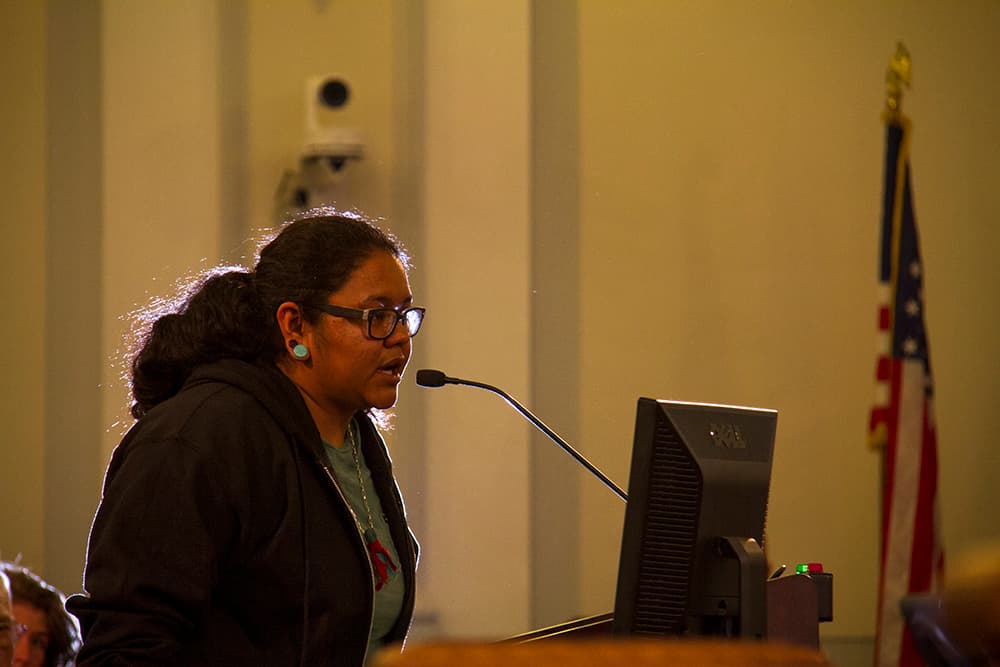Cynthia Lopez was nearly forced to sell her home -- and for $80,000 less than she wanted -- because she never knew that it was part of an affordable housing program, according to her attorney.
After months of work, Lopez has escaped that fate — but more people are discovering that their homes have income limits that may force them to move, according to attorney Robert McGough.
Lopez bought a home in Green Valley Ranch in 2012.
Last year, she was ready to move. She had a contract to sell the house for $265,000, as she told Fox31 in October.
Days before closing the sale, though, she discovered that her home is part of an affordable housing program. Built in 2003, it can only be sold for certain prices and to people with incomes below a certain level -- limits that she doesn't currently meet.
"When she purchased the house in 2012, the seller did not submit her to the income verification process," said her attorney, Robert McGough, in an interview today with Denverite.
"The seller didn’t even tell her it was an affordable-housing covered house."
City officials reportedly told Lopez that she now could only sell the home for $186,000 -- and then they ordered her to list the unit for sale within 30 days, as Rob Low reported.
"The city took the position, initially, that since she didn’t qualify, she wasn’t able to remain in the property," McGough said.
Lopez dodged a bullet, we learned this week.
Basically, she proved that she met the income requirements at the time she bought the home -- even though she didn't know about them. It doesn't matter whether she currently exceeds those limits; it's all about your income at the time of purchase.
"Thus, she has been retroactively approved," wrote Derek Woodbury, a spokesman for the Office of Economic Development, in an email to Denverite.
Lopez still can't sell for full market prices, and she can only sell it to buyers who meet the income requirements. She also can't rent the unit. Those limits apply until the covenant expires, typically 20 years after construction.
She's far from the only homeowner to be surprised they might be in violation.
As of Feb. 23, the city was investigating eight cases where someone might be violating affordable homeownership rules, per Woodbury.
"These parties have been notified, and we are taking steps to get these homes back into compliance to ensure affordability," Woodbury wrote.
Those may not be the only cases to come. The city analyzed the city's entire portfolio of affordable homeownership units, Woodbury wrote, "and we have determined that there are potential issues with a portion of the properties."
The city also sent out a letter to all of the owners of income-restricted houses in Denver, more than 1,200 households in total. It included a "brief reminder" of the terms and conditions governing their homes.
Woodbury did not disclose how many units may be affected, but McGough believes it could be a sizable number.
"Every day, it seems like I get a couple more calls," the attorney said. "Two clients responded (to the letter) only to find out that, 'Oh, you weren’t income qualified,' which could potentially result in a forced sale ... Many of these folks have no idea that these are affordable housing restricted properties."
McGough believes that the problem is in part a result of the city taking a "passive role" to the affordability program.
"They’ve been relying on parties to transactions as well as title companies to contact the city to inform them that there’s a transaction that might implicate an affordable housing restricted property," he said.
"The city, under the ordinances, has a duty to administer this program, and part of that duty is to periodically check on ownership and sales of these homes. I have not seen evidence at all that the city has done that at all."
Woodbury, however, said that the city has sent the reminder letters in 2007, 2011 and 2014.
"We need to figure out a process where it’s crystal clear so that a homeowner, but then also title companies and realtors, know what to look for ... so we don’t get into a situation like this going forward," said Councilwoman Stacie Gilmore, whose district includes Green Valley Ranch.
" ... We need to look at the most proactive solution, especially if it is someone who through no fault of their own got into this situation. We need to figure out what the steps are or what the support services might be to rectify the problem."
Do you know more about this? Email me.











